Over-Supplementation Malnutrition
Malnutrition is caused by an imbalance of nutrients, deficiencies or excesses. When creating diet and nutritional plans for parrots, ensuring an exacting balance of nutrients is more important for them than any other companion animals I have worked with.
In order to prevent vitamin toxicity in your birds, you must monitor levels of vitamins A, D3 and C in the diet that are in formulated pellet diets and supplements. Vitamins A and D3 are fat-soluble vitamins. They are dispersed and stored in fat, any excesses remain in the body and can cause toxicity problems (hypervitaminosis). Vitamin C is a water-soluble vitamin, and because of this, it cannot be stored in the body. In many species, excess vitamin C easily travels out of the body in excreta. I have not located any publications documenting this self-regulating ability in parrots.
Read more in the magazine…

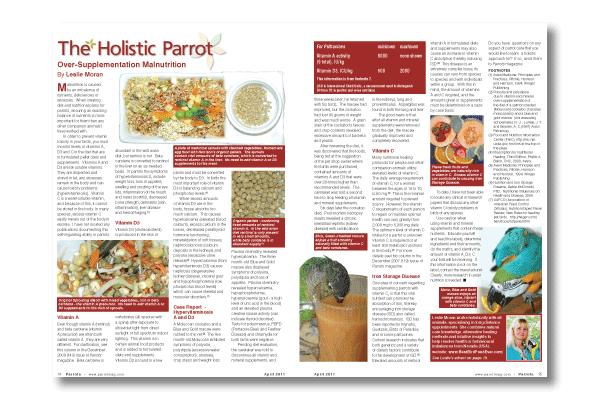
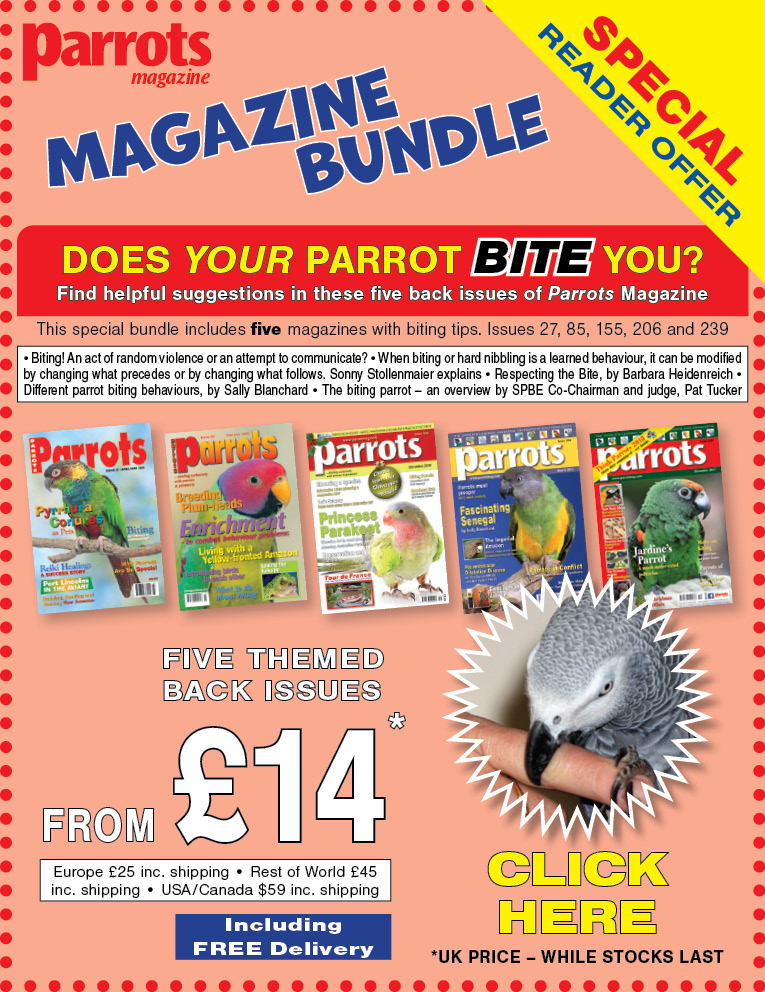
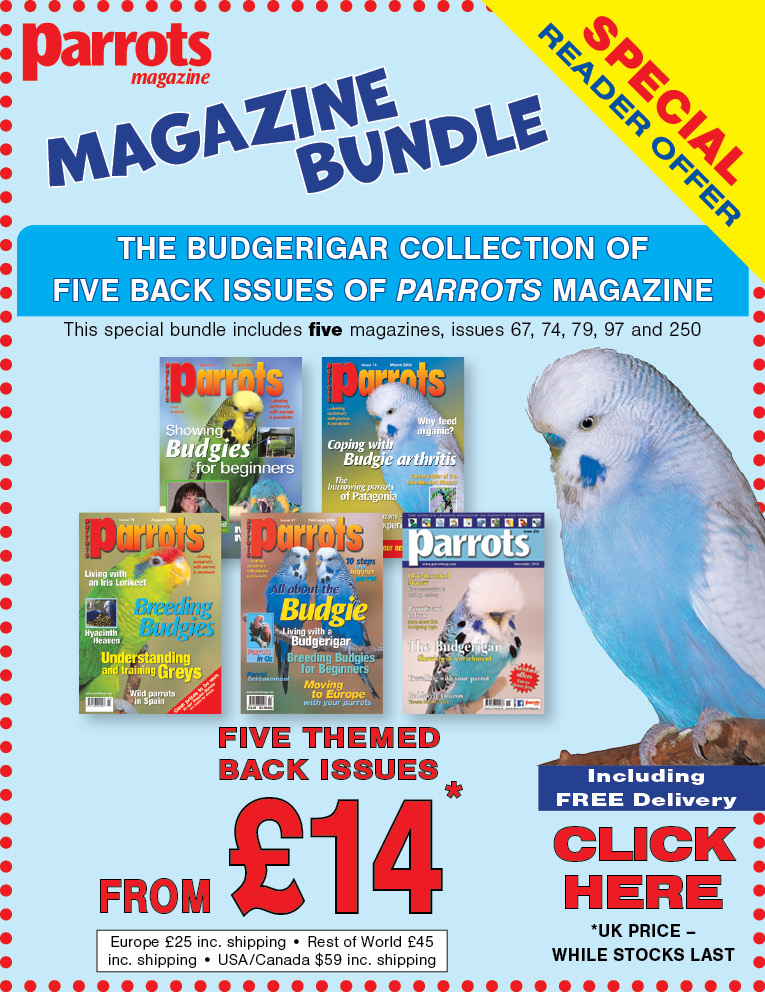
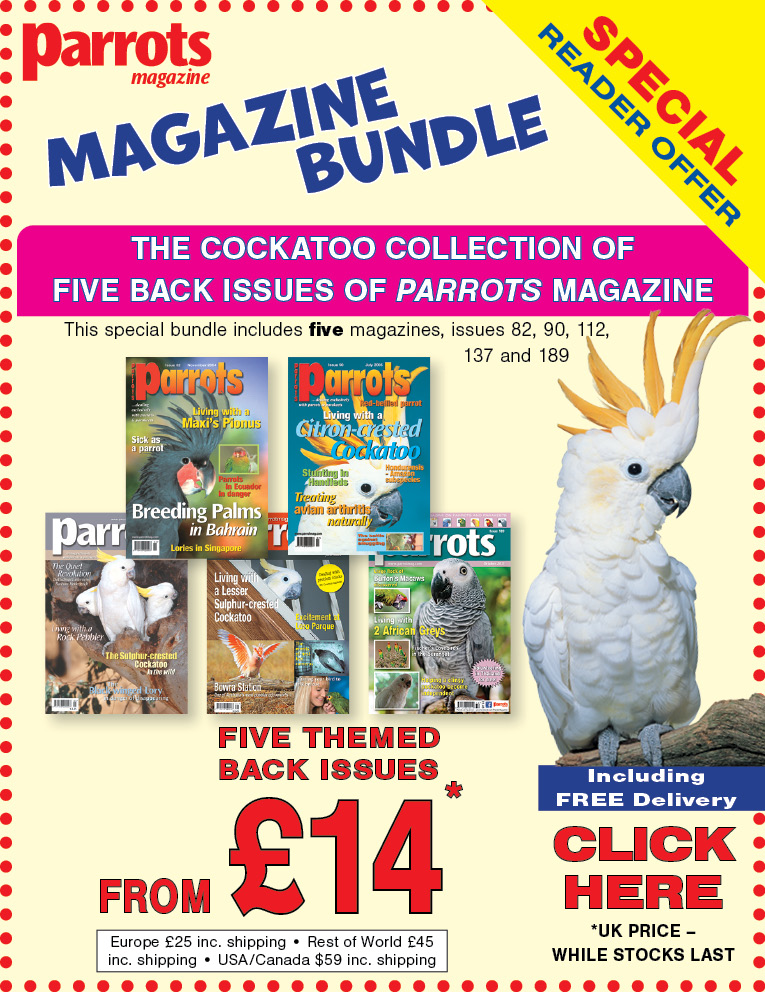
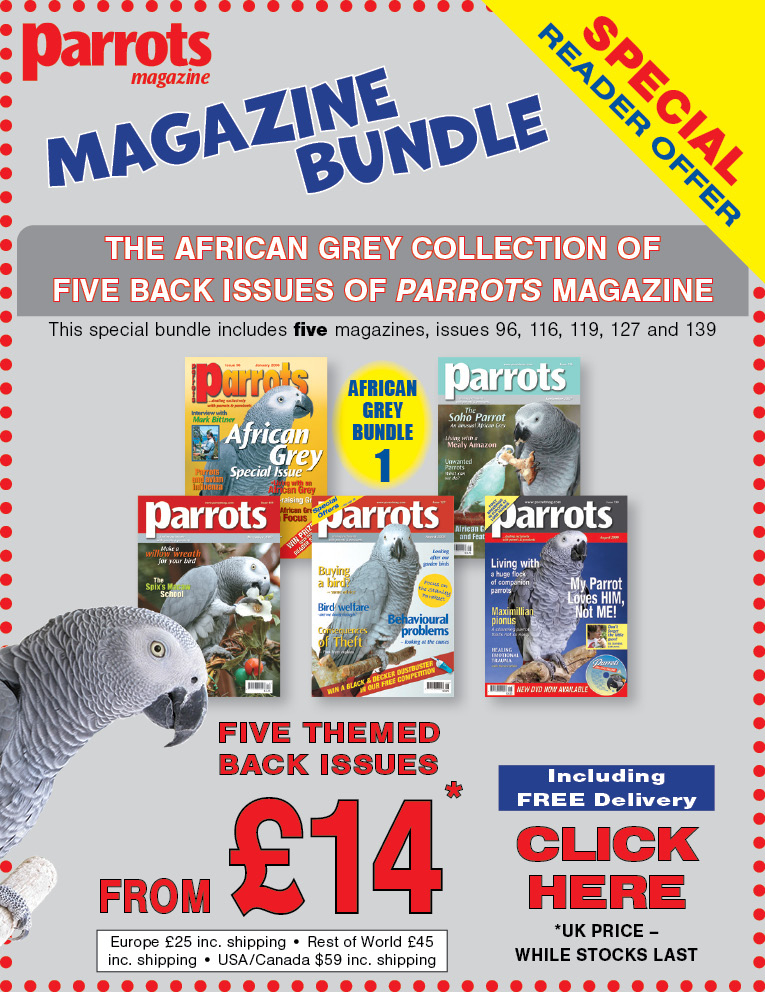
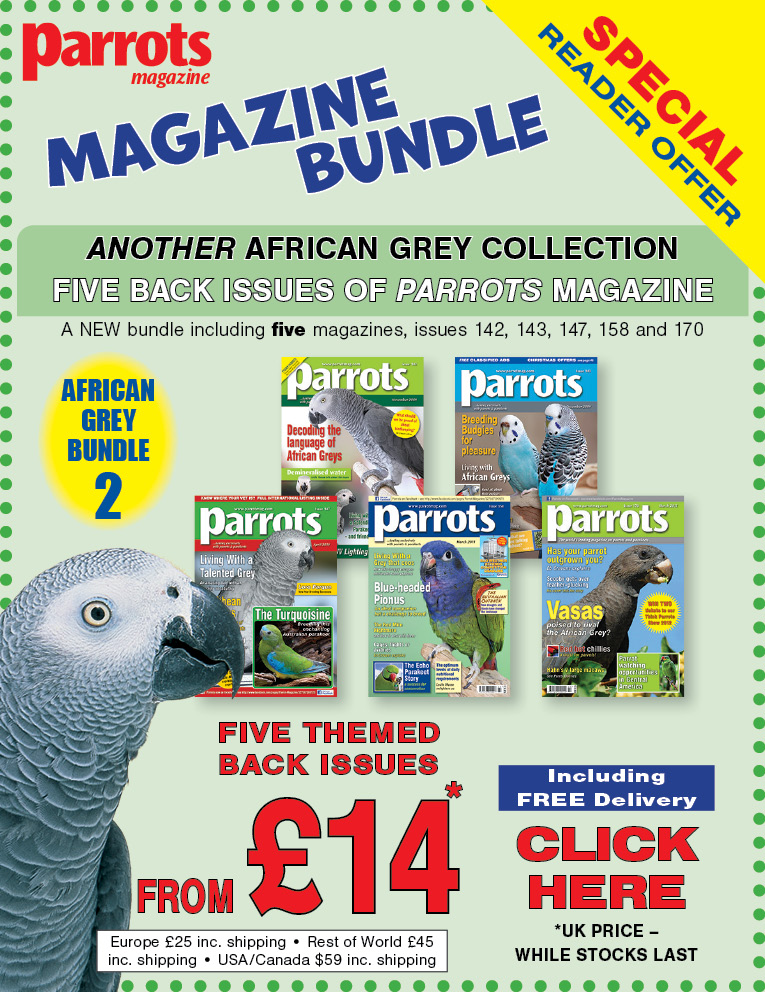
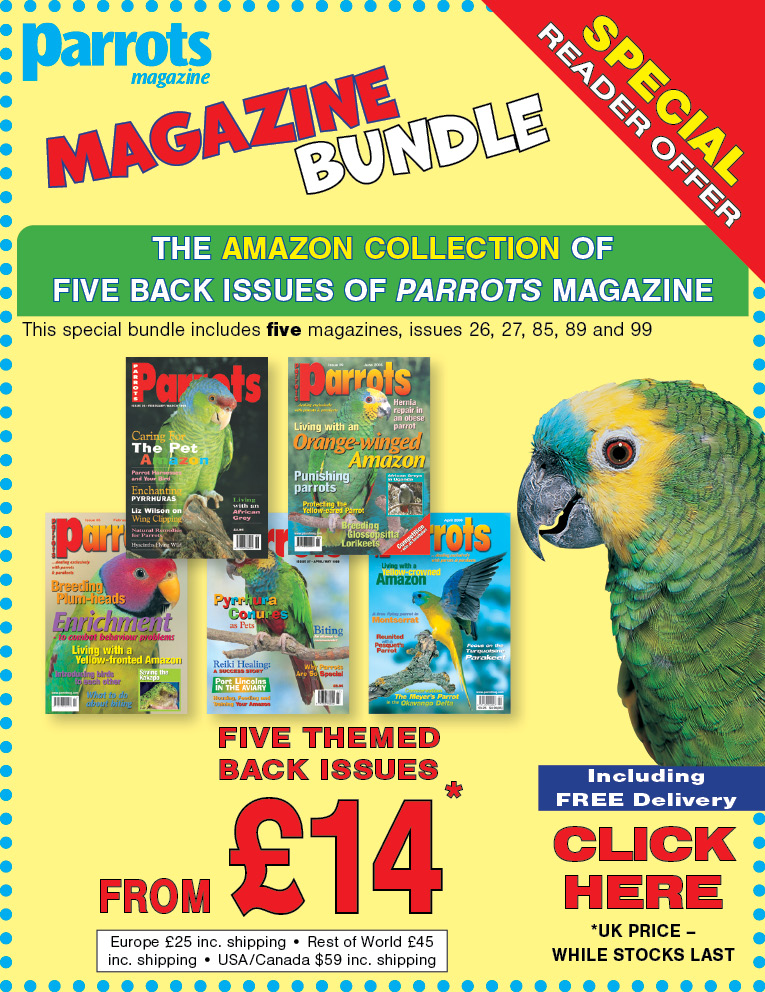

Parrot Chat
Buyers Guides
Breeding articles